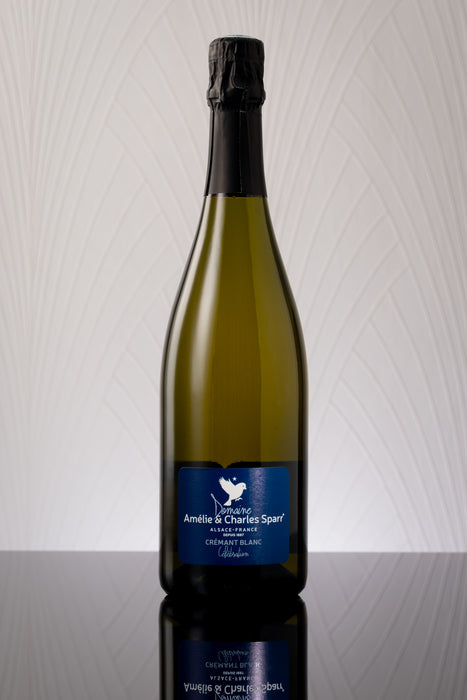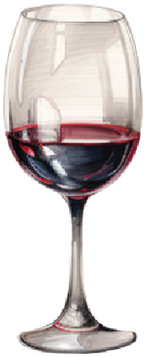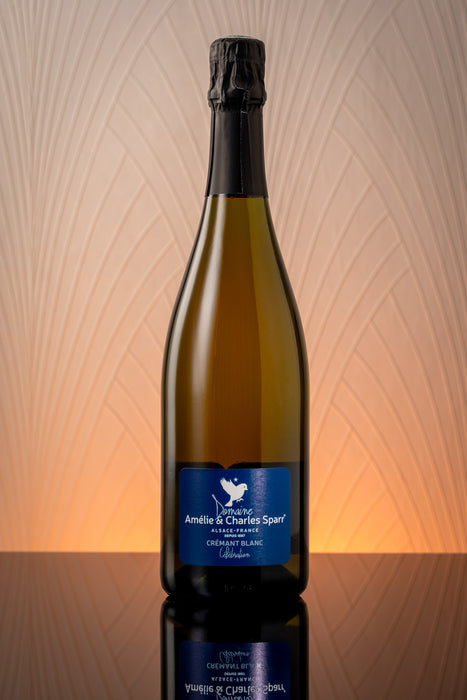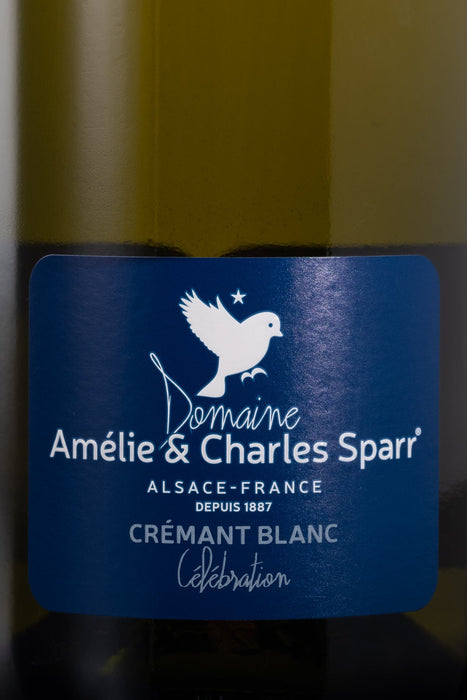
2020 Domaine Amelie & Charles Sparr Cremant d'Alsace
Region: Alsace, France
Grape: Pinot Blanc
Culinary Suggestions: Tapas, Oysters, Prosciutto, Spring Rolls, Sushi
Vineyard Practice: Biodynamic
About
Set in the village of Wettolsheim, Domaine Sparr has burst onto the Alsace wine scene with wines crafted from their 12 hectares of vines including 4 Grand Crus. All grown and vinified in a new age style, Charles and Amélie Sparr are breaking traditions and bringing forth an enticing new style of Alsace wine, alongside familiar classics.
Domaine Sparr is the combination of two incredibly experienced Alsatian wine families, with Amélie from a family of country winegrowers, and Charles from a family of wine merchants. The Sparr family has been in Alsace since 1634, with Charles the 12th generation now living and working there. With his great-grandfather being Pierre Sparr, a famously respected negociant, wine is in his blood and with Amélie by his side a wealth of extra knowledge comes with it. Following the sale of his family’s company in 2007 there were no vineyards left in his name, until, at 16, he bought his first of many vineyards.
Amélie and Charles have worked tirelessly to create a range of Alsace wine which is 100% biodynamic. Over time, their expansion has included the purchase of vineyards from both sides of the family, until in 2013 they realised their dream and launched their eponymous winery. Initially they sold their grapes to negociants until they found the courage to bottle under their own label in 2017. By starting from scratch, willing to try a range of new ideas and methods, they have brought life to Alsace wine in a way never done before.
Currently spanning 12 hectares of vines, their holdings are across 7 villages including 2 Premier Crus and 4 Grand Crus, including Mambourg. Alongside their various parcels of vines, they also hold land which contains no vines, this is utilised for the production of compost.This compost is crucial in providing the precious balance essential for living in near self-sufficiency, with harvested matter being returned to Mother Nature. Working with high canopies to allow for more photosynthesis to occur, they also choose not to hedge their vines at all on occasion to allow energy to continue to flow throughout the season.
Amélie and Charles are deeply attached to the land and uphold healthy and sustainable methods of agriculture, free from all pesticides. The lunar calendar, has a strong influence as infusions of plants (nettle, chamomile, dandelion, horsetail) at precise moments in the growth cycle are scheduled, and tisanes are sprayed according to the position of the stars. Returning to a more human type of viticulture, using manual and artisanal techniques, biodynamics play an important role in contributing to the taste and the balance of their wine.
At Domaine Sparr, the harvest is done completely by hand to prevent any bruising or breakage before reaching the cellar. Working with whole clusters in a slow and gentle press, this process in itself can last about twelve hours. The juices are then vinified with the same respect that they apply in the vines using indigenous yeasts established in the vineyard to encourage natural fermentation, taking up to three weeks. In the eyes of the Sparr couple, additives have no place in their Domaine.
The terroir their cellar sits upon emits a vibration that no oenological technique is yet capable of reproducing, so controlling temperatures at key winemaking stages is imperative to protect the fruit aromas. Once vinified, the wines age on fine lees for eight to ten months, with no sulphur used until bottling to ensure all wines go through malolactic fermentation. One key difference to classic French production is the use of Austrian made barrels, lowering the oaky tones often resulting from French Oak. - Importer Note





